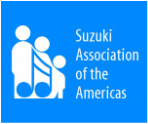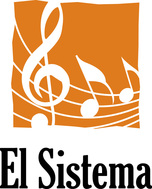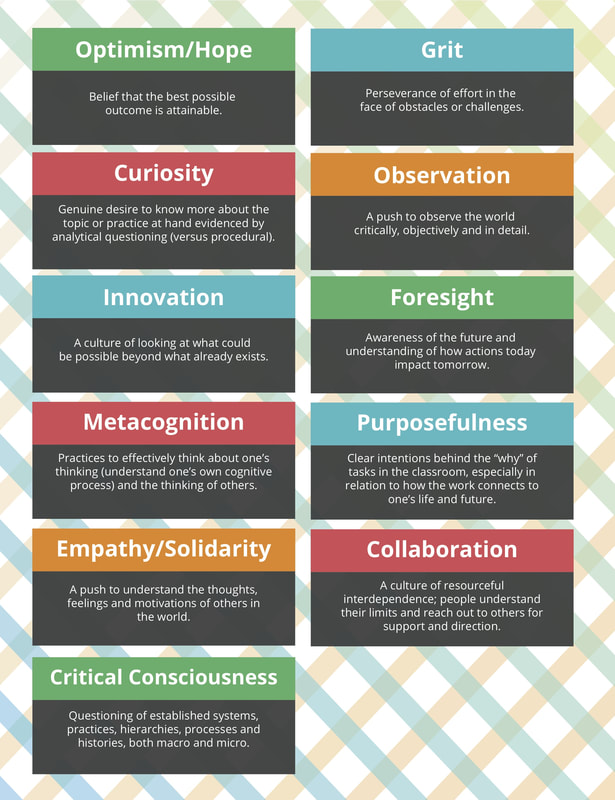Ultimately we need agents of social justice who are able to solve deep-rooted problems,
imagine new realities and build movements that span communities across the world.
~ Guide to Humanizing Schooling, PIE
One is a product of their environment.
~Dr Shinichi Suzuki
Our Teaching Approach & Studio Culture
- Our purpose of teaching music is to nurture the changemaker skills needed for every child to transform the world!
- We build a positive learning environment by using the transformative Suzuki education practices of repetition, review, listening, early beginning, ear-before-eye note reading, parent participation and nurturing language.
- We use the classical Suzuki method alongside improvising & community collaborations to grow students' genre exploration. During annual Place-based Music Celebrations, local artists serve as guest instructors who implement place-based education and experiential learning.
- DYV is inspired by the Rida Framework, the El Sistema network, and ideas from Pedagogy of the Oppressed, written by Brazilian educator and theorist, Paulo Freire.
- We intentionally nurture RICH changemaker skills in our students as we expand their musical experiences. Resilience, Innovation, Collaboration, & Higher Order Thinking Skills are four essential skills "necessary for ethical citizenship, collaboration, and creating social change".
- We strive to function as an anti-racist, pro-Black organization, both as a community of people and a non-profit, through our practices inside and outside of the classroom.
- We endeavor to make all the benefits of the Suzuki pedagogy accessible to our students. Removing barriers to participation include providing the resources and environment needed for success within a quality arts education.
- The Youth Volume community is committed to expanding equitable music education. Director Clara Hardie coaches a virtual Course of Action called Growing Equitable Music Studios for studio music teachers who believe every child can change the world. YV's Equitable Tuition Fund subsidizes tuition to make Youth Volume GEMS accessible to low-income teachers.
Suzuki
Teaching music is not my main purpose. I want to make good citizens. If children hear fine music from the day of their birth and learn to play it, they develop sensitivity, discipline and endurance. They get a beautiful heart. ~Dr Shinichi Suzuki

We believe our student deserve the best, which is the Suzuki method, a high-quality, internationally-renowned method of learning. Things like weekly private lessons, group class, and parent participation (during lessons as well as daily home-practice) set the Suzuki method apart from other pedagogies. Suzuki sets students up for success and happiness.
We also want to create social transformation, using the Suzuki method to nurture children’s empathy for others, perseverance, patience and will for mastery. Dr Suzuki wanted to change the world by helping children become peace-makers; he created the pedagogy following World War II in Japan. The Suzuki approach develops beautiful humanity in students by nurturing beautiful musical talent. “It is necessary to be concerned about the importance of educating a really beautiful human spirit,” Suzuki said.
The Suzuki pedagogy includes the following components of education:
We also want to create social transformation, using the Suzuki method to nurture children’s empathy for others, perseverance, patience and will for mastery. Dr Suzuki wanted to change the world by helping children become peace-makers; he created the pedagogy following World War II in Japan. The Suzuki approach develops beautiful humanity in students by nurturing beautiful musical talent. “It is necessary to be concerned about the importance of educating a really beautiful human spirit,” Suzuki said.
The Suzuki pedagogy includes the following components of education:
- Group & Private Lessons - YV offers 35 lessons per school year and bi-monthly Saturday morning group classes
- Positive learning environment
- Parent participation - parent is expected to engage in each lesson by taking notes. They facilitate daily home practice until child is capable of practicing independently.
- Early beginning - age 3-5 but Dr Suzuki said, "You're rarely too young and never too old to Twinkle"
- Common, set repertoire - 10 books of music provide songs that teach musicality and technical skills progressively
- Repetition
- Review - songs that have been memorized are part of daily practice to keep skills sharp, develop artistry & bolster confidence
- Step-by-Step & Layered Learning - pieces and position points are given in bite-sized pieces. Before one songs is mastered, students are given a "preview" to the next piece. These practices create a feeling of constant success which nurtures a will for mastery.
- Daily listening - Suzuki recordings and other excellent music in the home
- Delayed note reading - initially, students are taught mainly "by ear" with light note reading and music theory activities. They begin weekly pitch and rhythm note reading from I Can Read Music after accomplishing a basic foundation of musicality and technique.
- Exposure to excellent live musical performances
Place-based education & experiential learning
Through our Place-based Music Celebrations, Youth Volume students practice experiential learning: the process that occurs between a teacher and student when learning environment and content are infused with direct experience. Every year, students work collaboratively with local artists to celebrate and learn about genres special to our cities during workshops, recording projects and performances. These activities nurture music changemaker skills while developing positive cultural identity and critical consciousness.
Collaboration with local artists is also a form of Place-based education, supporting students to solve community problems by using their local community and neighborhoods as a primary learning resource—the unique history, environment, culture, economy, literature, and art. Place-based education often involves hands-on learning, project-based learning, and is always related to something in the real world.
Collaboration with local artists is also a form of Place-based education, supporting students to solve community problems by using their local community and neighborhoods as a primary learning resource—the unique history, environment, culture, economy, literature, and art. Place-based education often involves hands-on learning, project-based learning, and is always related to something in the real world.
El Sistema

Youth Volume is part of an international network of El Sistema-inspired programs. El Sistema is a Venezuelan musical youth development program dedication to rigorous, artistic ensemble playing as a vehicle for social change. Hundreds of El Sistema inspired programs have been created that use intensive, ensemble-based programming for at-risk youth across the U.S.
The goal of El Sistema is to strengthen executive function skill development and intrinsic motivation through collective musical ensemble learning. It also increases social capital through the development of positive relationships with peers, parents and other adults. In addition, the El Sistema philosophy promotes civic engagement of youth by instilling problem solving and leadership skills that are transferrable into out-of-program contexts.
The goal of El Sistema is to strengthen executive function skill development and intrinsic motivation through collective musical ensemble learning. It also increases social capital through the development of positive relationships with peers, parents and other adults. In addition, the El Sistema philosophy promotes civic engagement of youth by instilling problem solving and leadership skills that are transferrable into out-of-program contexts.
Rida Framework
Ultimately, we need agents of social justice who are able to solve deep-rooted problems, imagine new realities and build movements that span communities across the world.
When educators, youth and community members embrace our full humanity, it allows us to envision and actualize a more just, creative and collaborative world.
YV's Founding Director and lead teacher Clara Hardie was trained in to use the Rida Framework, a planning and evaluation tool developed by Detroit teachers & their extended international communities. It was inspired by Brazilian educator and theorist, Paulo Freire. Using the Ride Framework quoted above and excerpted below, teachers employ transformative practices to cultivate essential human skills (pg 12) necessary for ethical citizenship, collaboration, and creating social change.
When Clara runs a virtual Course of Action for other rad music teachers, she guides them in choosing changemakers skills from the Rida Framework during Week 5. Employing and personalizing equity pedagogy in the classroom is one facet of Growing Equitable Music Studios.
When Clara runs a virtual Course of Action for other rad music teachers, she guides them in choosing changemakers skills from the Rida Framework during Week 5. Employing and personalizing equity pedagogy in the classroom is one facet of Growing Equitable Music Studios.
